This is an article on a strange Conspiracy Theroy – Rumble in the ring!. An incident of fight between Sonny Liston and Muhammad Ali is briefly described.
Fifty years on from the legendary boxing match in which Muhammad Ali beat Sonny Liston to become heavyweight champion of the world for the first time, new documents have come to light which reveal that the FBI long suspected that the shock result was really a fix.
The fight between reigning champion Liston and brash young upstart Ali – then known as Cassius Clay – took place on Feb. 25, 1964, at the Miami Beach Convention Center.
Ali, just 22, entered the ring as a 7-1 underdog, but pulled off a shock victory which laid the foundations for his glittering career to follow.
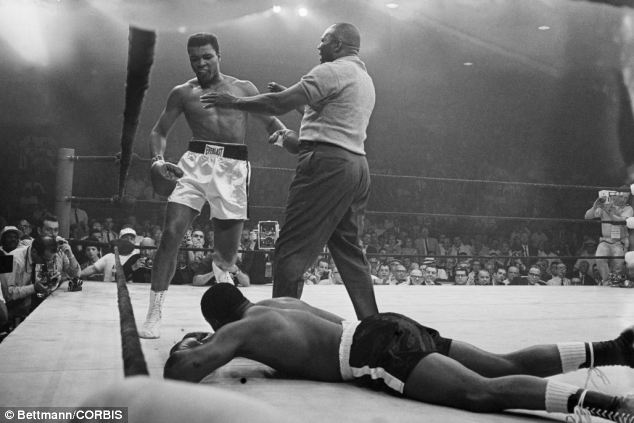
Suspicion: New documents have come to light which reveal that the FBI long suspected that the shock result in Clay v Liston was really a fix
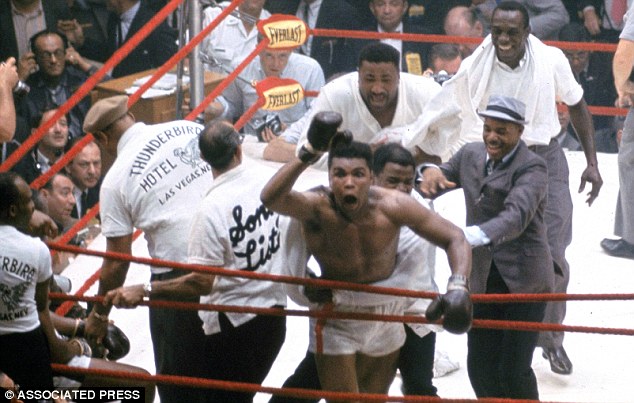
Celebration: When Liston quit after the seventh round Clay started jumping and waving his hands, yelling ‘I’m the champ’
The memorable match, named the fourth-greatest sports moment of the 20th century by Sports Illustrated, ended when Liston quit after the seventh round and Ali started jumping and waving his hands, yelling ‘I’m king of the world! I’m king of the world!’
Now documents released to The Washington Times under the Freedom of Information Act reveal that the FBI suspected the fight may have been fixed by a Las Vegas figure tied to organized crime and to Liston.
The memos, so sensitive that they were addressed directly to Director J. Edgar Hoover, show the FBI suspected Ash Resnick, a Las Vegas gambler with organized crime connections, of fixing multiple boxing matches, including the first Clay-Liston fight.
The key new evidence is an FBI memo dated May 24, 1966, that details an interview with a Houston gambler named Barnett Magids, who described to agents his discussions with Resnick before the first Clay-Liston fight.
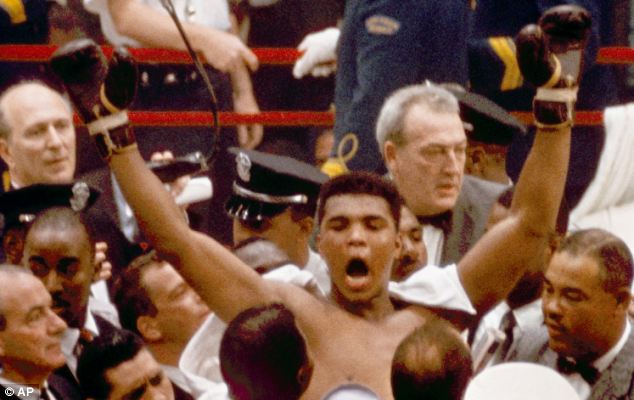
Familiar pose: Clay leaves the ring, arms raised, following his defeat of Liston in Miami
Magids told them that Resnick strongly advised him against betting on Liston winning. The reports also reveal that Resnick and Liston both reportedly made over $1 million betting against Liston in the fight.
The documents show no evidence that Ali was in on the scheme or even knew about it, while nothing suggests the bureau ever fully corroborated the suspicions it investigated.
Both fighters were controversial figures, Liston was an ex-con with ties to the mob ties, while Ali had joined the Black Muslims weeks before the fight.
Early in the fight Ali was in trouble early, losing his vision at one point, before he came back to convincingly beat Liston.
The result was such a shock at the time that there was speculation that the outcome might have been manipulated.
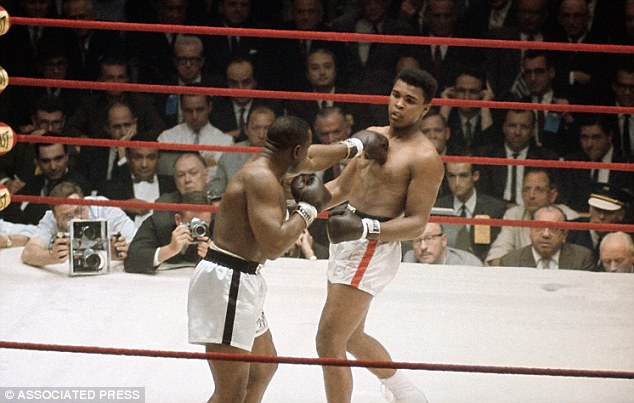
The outsider: Clay (right) entered the ring as a 7-1 underdog, but pulled off a shock victory which laid the foundations for his glittering career as Ali
Liston said he quit because of a shoulder injury, while the Miami Beach Boxing Commission doctor reportedly diagnosed a torn tendon in Liston’s left shoulder.
Florida State Attorney Richard Gerstein conducted a post-fight investigation, which concluded that Liston went into the fight with a bad shoulder.
He determined there was no evidence that the fight was not ‘completely regular,’ according to The Palm Beach Post.
Miami Beach Boxing Commission Chairman Morris Klein said commissioners were satisfied that there was ‘no wrongdoing’ and allowed Liston to collect his $370,000 purse.
A U.S. Senate subcommittee conducted hearings three months later but found no evidence of a fixed fight.
Liston was found dead by his wife in their Las Vegas home on Jan. 5, 1971. Police determined he died from a heroin overdose, but the cause of death remains controversial.
Liston’s friends maintained it was a homicide covered up by police.
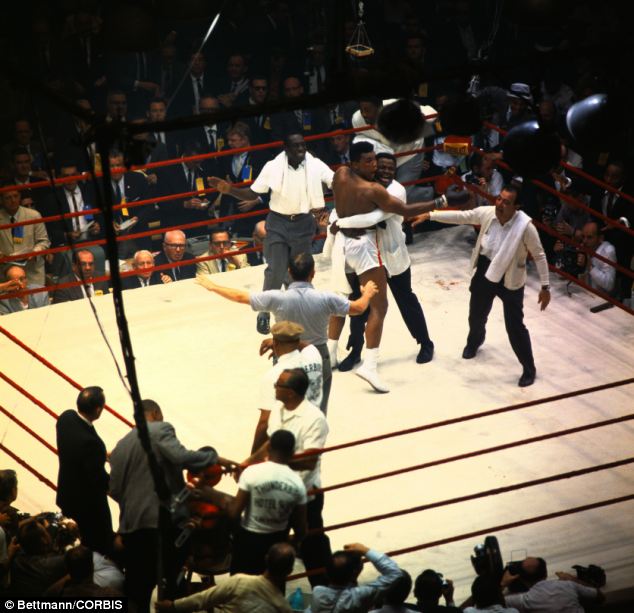
Nearly the greatest: The memorable match has been named the fourth-best sports moment of the 20th century by Sports Illustrated














